Recently, Mr. BVĐ, 53 years old, from Hai Duong , came to Medlatec General Clinic because of concerns about symptoms of dry cough and difficulty swallowing.
Recently, Mr. BVĐ, 53 years old, from Hai Duong, came to Medlatec General Clinic because of concerns about symptoms of dry cough and difficulty swallowing.
Diagnosed with medullary thyroid carcinoma (MTC), Mr. D. underwent a series of tests, including thyroid ultrasound and cytology, which helped detect this serious disease at an early stage, and is currently undergoing treatment.
 |
| Illustration photo. |
Symptoms of dry cough and feeling of difficulty swallowing are common in many diseases, but if they persist and show no signs of improvement, as in Mr. D's case, early examination and diagnosis are extremely important.
At Medlatec, doctors discovered a thyroid nodule suspected of malignancy through ultrasound, and after further cytological testing, the conclusion was made: medullary thyroid carcinoma. This is a rare cancer, accounting for about 1-2% of all thyroid cancers.
Medullary thyroid carcinoma (MTC) is a rare disease that arises from the calcitonin-secreting C cells of the thyroid gland. MTC can be divided into two types: sporadic and hereditary.
The individual form accounts for about 70% and is common in people aged 40-60 years old, manifesting as a solitary tumor in the thyroid gland.
The hereditary form accounts for about 30% and usually appears in young people (30-35 years old), associated with genetic syndromes such as MEN 2A, MEN 2B, or familial medullary thyroid cancer (FMTC).
The cause of the disease is mainly due to RET gene mutations, which can be detected through screening tests.
Symptoms of medullary thyroid carcinoma may not be obvious in the early stages, often starting as a painless thyroid lump. As the disease progresses, the patient may experience symptoms such as lymph node metastasis, diarrhea, severe facial flushing or even Cushing's syndrome.
To detect the disease, necessary tests include measuring calcitonin and CEA in the serum. Elevated calcitonin levels are a sign that the tumor may be malignant, and monitoring these levels will help monitor the progression of the disease.
The main treatment for medullary thyroid carcinoma is total thyroidectomy, combined with monitoring of calcitonin levels to detect recurrence. Currently, Mr. D. is undergoing hormone replacement therapy and regular follow-up, and his health condition is stable.
The survival rate for patients with medullary thyroid carcinoma depends on the stage at which it is detected and the treatment. The 5-year survival rate can be as high as 90% if the disease is detected early, but if the disease is late or metastatic, this rate can drop to only 65%. The best prognostic factors are detecting the disease at the microscopic stage and having a family history of the disease.
Dr. Nguyen Thi Hong Nga, Medlatec Pathology Center, recommends that people should be alert to symptoms of persistent dry cough and difficulty swallowing, especially if there is a family history or related genetic factors. Regular check-ups and screening tests are the best way to detect this disease at an early stage.
In Mr. D.’s case, fortunately, the disease was detected at an early stage, which increases the chances of successful treatment. So, don’t ignore seemingly minor symptoms, especially if they persist or show no signs of improvement.
Source: https://baodautu.vn/ho-khan-nuot-nghen-phat-hien-ung-thu-hiem-gap-d244590.html










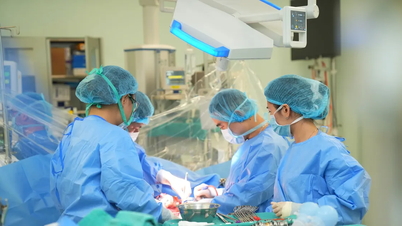
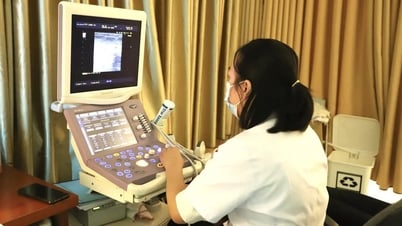



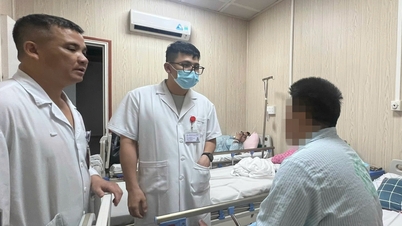





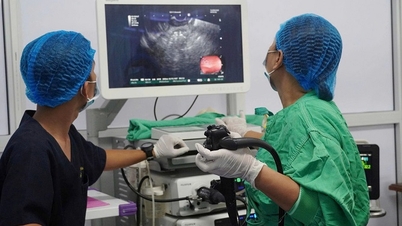














![[Photo] Urgently help people soon have a place to live and stabilize their lives](/_next/image?url=https%3A%2F%2Fvphoto.vietnam.vn%2Fthumb%2F1200x675%2Fvietnam%2Fresource%2FIMAGE%2F2025%2F12%2F09%2F1765248230297_c-jpg.webp&w=3840&q=75)


















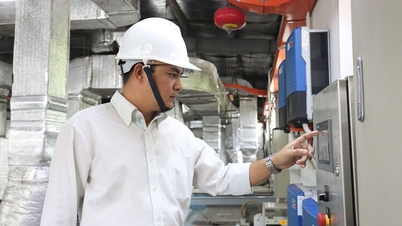





































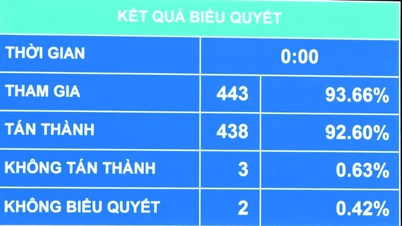
























Comment (0)